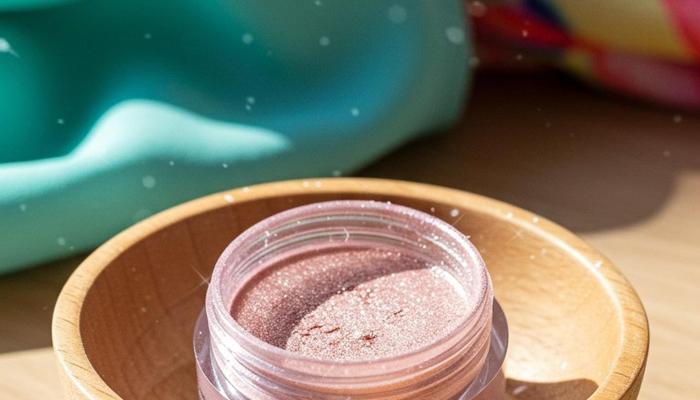Unveiling the Power of Exfoliation in Your Skincare Regimen - Discover the key to radiant, healthy skin!
In the bustling world of skincare, where new products and techniques emerge almost daily, it's easy
to overlook the importance of a fundamental practice: exfoliation. Many of us spend our hard-earned money on serums, moisturisers, and fancy face washes, hoping for that radiant, youthful glow.
But if you're not exfoliating regularly, you might be hindering your skin's ability to absorb all those beneficial ingredients! Think of it like this: applying a lotion to skin covered in dead cells is like trying to water a plant through a layer of pebbles.
The good stuff simply can’t reach where it needs to be. Exfoliation, in simple terms, is the process of removing dead skin cells from the surface of your skin, revealing the fresher, healthier cells underneath. It's like giving your skin a fresh start, allowing it to breathe and function optimally.
Regular exfoliation vital for healthy, radiant skin
Why is this removal crucial, you ask? Well, our skin naturally sheds dead cells every 30 days or so, and new cells form to replace them. However, sometimes this process isn't as efficient as it should be.
Dead cells can accumulate, leading to a dull, uneven skin tone, clogged pores, and even breakouts. Exfoliating helps speed up this natural process, preventing the build-up of dead cells and allowing your skin to look brighter and smoother.
It also helps to improve the texture of your skin, making it feel softer and more supple. Regular exfoliation can also make your makeup application smoother and more even, as there are fewer dead cells for the makeup to cling to. Overall, it helps with blood circulation leading to healthier skin.
Physical and chemical exfoliation methods for dead skin cells
There are generally two main types of exfoliation: physical and chemical. Physical exfoliation involves using tools or scrubs to manually remove dead skin cells. These can include things like scrubs with small beads or grains, exfoliating brushes, or even a simple washcloth.
Chemical exfoliation, on the other hand, uses acids or enzymes to dissolve the bonds between dead skin cells, allowing them to be easily sloughed off. Common chemical exfoliants include AHAs (alpha-hydroxy acids) like glycolic and lactic acid, and BHAs (beta-hydroxy acids) like salicylic acid.
Both physical and chemical exfoliation have their own pros and cons, and the best type for you will depend on your skin type and concerns. With physical removal one can be certain of dead cell removal.
Choose gentle exfoliants for sensitive skin, stronger options for oily skin
Choosing the right method depends on your skin type. Folks with sensitive skin might find harsh physical scrubs irritating, and chemical exfoliants with high concentrations of acids can cause redness and inflammation.
So, if you belong to this group, start with gentle options like a soft washcloth or a very mild enzyme peel. If you have oily or acne-prone skin, on the other hand, you might benefit from stronger exfoliants like salicylic acid, which can penetrate pores and dissolve excess oil and dead skin cells.
People with normal to combination skin usually have more flexibility and can experiment with different types of exfoliation to see what works best for them.
Remember, it's always a good idea to do a patch test before applying any new product to your entire face, especially if you have sensitive skin.
Over-exfoliating harms skin, follow guidelines for healthy skin
Now, a cautionary note is very important: over-exfoliating is a real thing, and it can do more harm than good. When you exfoliate too much or too often, you can strip your skin of its natural oils, disrupting its protective barrier.

This can lead to dryness, irritation, redness, inflammation, and even breakouts. Think you can get over-cleansed. A good rule of thumb is to exfoliate one to three times a week, depending on your skin type and the type of exfoliant you're using.
Always listen to your skin, and if you notice any signs of irritation, cut back on the frequency. After exfoliating, be sure to moisturise your skin well to replenish any lost moisture and protect it from environmental damage.
Exfoliation is key for glowing skin, choose wisely and don't overdo it
In conclusion, exfoliation is a vital part of any effective skincare routine. By removing dead skin cells and promoting cell turnover, it reveals brighter and smoother skin, improves the absorption of other skincare products, and helps to prevent clogged pores and breakouts.
However, it's important to choose the right type of exfoliation for your skin type and to avoid over-exfoliating. With a little knowledge and careful attention to your skin's needs, you can reap the many benefits of exfoliation and achieve a healthy, radiant complexion!
Don't forget to consult a dermatologist or skincare professional if you have any concerns or questions about exfoliation.
AI Generated Content. Glance/InMobi shall have no liability for the content











